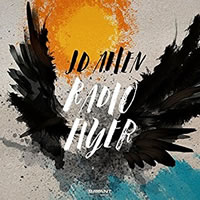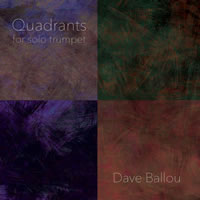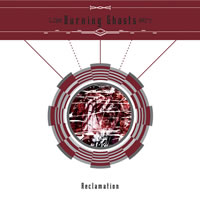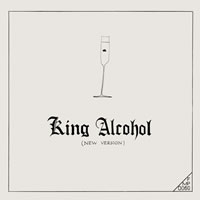Moment's Notice
Reviews of Recent Recordings
(continued)
JD Allen
Radio Flyer
Savant SCD 2162
 When I first came across JD Allen in 2009 on his album Shine, I was struck with, among other things, the conciseness of his compositions and playing, especially the clarity of vision and purpose demonstrated by his stellar trio (Gregg August, bass; Rudy Royston, drums). What they seemed to be after was the very marrow of the music, which they pursued with confidence and verve. Eight years and several albums later Allen’s trio is still together, yet its approach and aesthetic on its new album marks a radical departure: a greater embrace of uncertainty, freedom, and the multiple possibilities that comes with its move toward free improvisation. Given how successful Allen’s trio has been fine-tuning its identity, it was a risky preposition to shift direction so dramatically. But with great risk comes great reward.
When I first came across JD Allen in 2009 on his album Shine, I was struck with, among other things, the conciseness of his compositions and playing, especially the clarity of vision and purpose demonstrated by his stellar trio (Gregg August, bass; Rudy Royston, drums). What they seemed to be after was the very marrow of the music, which they pursued with confidence and verve. Eight years and several albums later Allen’s trio is still together, yet its approach and aesthetic on its new album marks a radical departure: a greater embrace of uncertainty, freedom, and the multiple possibilities that comes with its move toward free improvisation. Given how successful Allen’s trio has been fine-tuning its identity, it was a risky preposition to shift direction so dramatically. But with great risk comes great reward.
For Radio Flyer Allen invited guitarist Liberty Ellman to join the trio, and the results are stunning. Unlike his earlier recordings, the tunes on Radio Flyer lack chord changes, strict form, and weren’t seen by the band until the recording session. In other words, they are ideal vehicles for opening things up and seeing where the music leads. As one would expect, this looser approach fosters diving into a variety of grooves (crisp bop to polymeter to stretchy rubato), textures (understated bass solos to four-voice polyphonic tapestry), moods (playful to melancholy), and track lengths (two cuts are nearly ten minutes – almost unheard of in Allen’s previous albums). On the whole, the music on Radio Flyer is a finely executed, organic, capacious, and open-ended extension of the trio’s earlier work; it is mature, heavy, and rooted in post-bop.
Perhaps the album’s most striking element is the relationship between Allen and Ellman. There is a wonderful tension at play between Allen’s more straight-ahead approach and Ellman’s tendency to push boundaries; it is as if each is holding a slightly warped mirror up to the other, showing each other what things are like on the other side. This is especially so on the title track: while Allen unfurls bop-infused phrasing, Ellman turns up the reverb and places crunchy chords and nebulous figures in what would normally be odd places. This dialectic creates music that is neither inside nor far out; it – like Radio Flyer as a whole – is simply engaging and fresh.
—Chris Robinson
Dave Ballou
Quadrants for solo trumpet
pfMentum 113
 Brave Dave. Ever since the Chicagoans, Mitchell-Bowie-Favors (Congliptious, 1968) and Anthony Braxton (For Alto, 1969), unaccompanied solos have been the great test, the great challenge for horn players. Solo woodwind albums abound, but solo trumpet albums are rare because the instrument itself is so demanding – and there’s the austerity of one lonely treble, less than 3-octave horn trying to hold the audience, which is used to the absent features of harmony, rhythm, group interplay. So, here’s Mr. Ballou. After over two decades of performing in groups, he’s now issued two solo CDs in a row. The first, Solo Trumpet (Clean Feed, 2015), has 10 tracks. Quadrants has four 15-minute free improvisations. Do the longer pieces mean he’s growing more confident as a soloist?
Brave Dave. Ever since the Chicagoans, Mitchell-Bowie-Favors (Congliptious, 1968) and Anthony Braxton (For Alto, 1969), unaccompanied solos have been the great test, the great challenge for horn players. Solo woodwind albums abound, but solo trumpet albums are rare because the instrument itself is so demanding – and there’s the austerity of one lonely treble, less than 3-octave horn trying to hold the audience, which is used to the absent features of harmony, rhythm, group interplay. So, here’s Mr. Ballou. After over two decades of performing in groups, he’s now issued two solo CDs in a row. The first, Solo Trumpet (Clean Feed, 2015), has 10 tracks. Quadrants has four 15-minute free improvisations. Do the longer pieces mean he’s growing more confident as a soloist?
This CD includes some fine music and some uninspired music. It opens with a grabber, in “North” – three long tones fill the first 75 seconds. Spaced, spat notes then begin to intervene between long tones; he develops the spaces and spits of sound and the long tones until more rhythmically varied phrasing becomes his main line. “North” continues with fanciful ideas that twine with variations on the initiating motives. The rest of the CD follows the general design of “North.” Ballou invents flowing variations of motives, sometimes including microtonal variations; often they begin with space that he gradually fills in. “East” starts with wa-wa muted and microtonal passages, but he seldom takes advantage of mutes’ possibilities for sonic variety. “West” starts with great up-slurs and space in tension. In fact, the tension of sound and space is often his medium, with varying success – “South” suffers from too much sound-space symmetry.
Next to the more free-ranging lyrical expressionist Lester Bowie and the infinitely subtle Wadada Leo Smith, the two free trumpet greats, Dave Ballou represents a third way. Even with his free flights of fancy, each solo is an entity, and “North” and “East” especially are gems. The reason for his successes is his will to shape solos, but when invention flags, the recurring architecture starts to creak.
–John Litweiler
Burning Ghosts
Reclamation
Tzadik TZA-CD-7815
 A rising presence on the West Coast, trumpeter Daniel Rosenboom has quickly become a leading voice in the Los Angeles underground. After recording his formative efforts for Vinny Golia’s revered Nine Winds label in the mid-2000s, Rosenboom founded his own imprint, Orenda Records, to document his hometown’s creative music scene. One of the label’s recent releases was the self-titled 2016 debut of Burning Ghosts, a metal-influenced quartet led by Rosenboom that transposes the seething turmoil of social injustice into cathartic instrumentals. The unit’s bracing frontline of trumpet and electric guitar, supported by a traditional rhythm section of upright bass and trap set, makes for a particularly compelling combination.
A rising presence on the West Coast, trumpeter Daniel Rosenboom has quickly become a leading voice in the Los Angeles underground. After recording his formative efforts for Vinny Golia’s revered Nine Winds label in the mid-2000s, Rosenboom founded his own imprint, Orenda Records, to document his hometown’s creative music scene. One of the label’s recent releases was the self-titled 2016 debut of Burning Ghosts, a metal-influenced quartet led by Rosenboom that transposes the seething turmoil of social injustice into cathartic instrumentals. The unit’s bracing frontline of trumpet and electric guitar, supported by a traditional rhythm section of upright bass and trap set, makes for a particularly compelling combination.
Released by Tzadik, Reclamation follows in the footsteps of the ensemble’s debut, with an intensified focus on compositional complexity. Where the prior effort was full of spontaneous detours, this session sounds more deliberately structured – from the melodic contours of the individual tunes to the album’s track sequencing, which unfolds like a suite. This is not to suggest that the quartet has lost its edge however. Guitarist Jake Vossler shreds with wild abandon on the anthemic “War Machine” and thrashes out squealing pinch harmonics on “Radicals,” yet the band’s focus is clearly on dynamics; the brooding atmospherics that introduce “Betrayal” gradually expand into nervy modulating riffs on “Gaslight,” deftly executed by bassist Richard Giddens and drummer Aaron McLendon. Rosenboom’s contributions are similarly nuanced; his solo statement on the opening fanfare, “FTOF,” is a model of smoldering intensity, ascending from terse martial refrains into clarion battle cries.
Dramatically diverse excursions materialize throughout the date, aurally reinforcing the record’s core concept of conflict and resolution. The songs’ track order (“Catalyst,” “Zero Hour,” “Revolution,” etc.), is thematically arranged, moving from aggressive to introspective and back again, suggesting the idea that revolution starts from within. Regardless of one’s political views or interpretation of the album’s underlying concept, Reclamation captures some of LA’s most creative virtuosos pushing the boundaries between musical genres, in the tradition of metallic cross-over ensembles like Last Exit, Painkiller, and Simulacrum. For those interested in hearing what the left coast has to offer in these trying times, this bracing sophomore effort rewards multiple listens.
–Troy Collins
Rudiger Carl Inc.
King Alcohol (New Version)
CvsD 032
 We are all the beneficiaries of John Corbett’s obsessive archivism – let’s just get that out of the way. This is a vintage slice of old school FMP, culled from a widely renowned performance in January 1972 at Berlin’s Akadamie der Kunste. The original release is presented intact on one disc, along with all the artwork and new and old liners, and there’s a second disc from the same date, with 70 minutes of additional romping.
We are all the beneficiaries of John Corbett’s obsessive archivism – let’s just get that out of the way. This is a vintage slice of old school FMP, culled from a widely renowned performance in January 1972 at Berlin’s Akadamie der Kunste. The original release is presented intact on one disc, along with all the artwork and new and old liners, and there’s a second disc from the same date, with 70 minutes of additional romping.
Recorded long before Carl picked up his accordion, he’s on tenor exclusively here. He’s joined by trombonist Gunter Christmann (decades away from his silence phase, still wailing rather majestically), and Detlef Schonenberg on drums. The ecstasy and exuberance of this period of European free music is really distinctive to me; and this group is special, exquisitely musical and attentive to nuance, for all their boisterousness. You can hear the aesthetic straight away, with the lovely rolling toms and expressive trombone that open the title track. And it’s not just space, but contrast that drives this trio. Carl’s deliberate, almost choppy phrasing creates a compellingly different gravity than Christmann’s, and Schonenberg shifts regularly between deft punctuation, big waves, and just-so textures. I’m especially smitten with the drummer on “Thrombose,” where he uses a wide range of timbres in a kind of blocky overall sound that sits somewhere between Lovens and Oxley. As a listener, I’m more drawn to the passages with light and air. But for those who want the heat turned up, fret not: there’s quite a bit of it on “AEIOU,” with Christmann in particular strutting his stuff, and in the opening sections of “Rush-Hour,” where Carl really achieves lift-off.
Some of the alternate tracks are, if anything, arguably even more powerful.
“KA Alt #1” roars a lot like some of the more fire-breathing combos of the period, with Carl spitting flames alongside some righteous trombone portamento. Even better is the lengthy trombone/drums duo. The trio chops and jabs like some rickety machine in certain passages, and reaches outward elsewhere to explore the hall’s big resonance. The most surprising track here is “KA Alt #3,” where Carl plays some seriously bluesy lines to contrast with Christmann’s stuttering and swan-diving. But the balance of the pieces here possesses the same virtues as the original release, filled with crisp lines, contrapuntalism, and odd textures. Just a terrific release all around.
–Jason Bivins
Kenny Clarke-Francy Boland Big Band
All Smiles
MPS 0211956MSW
 The Clarke-Boland band was a 1960s phenomenon, a 17-piece European band that in this edition included at least eight American expatriates. On the face of it they’re hot soloists eager to bust out and wail – note, for instance, their En Concert album (Europe1). Nevertheless, this reissue of a 1968 LP, ten standard songs, is an arranger’s album. Most musicians get one or two solos, sometimes only a strain or two long, though arranger Boland improvises bop piano – real bop, not arranger-style piano – in several songs. Big band sounds, the brass and sax section colors and blends haven’t changed much since bop was a baby. But Boland was a clever arranger and this band is a counterpart to the American Thad Jones-Mel Lewis band, which was also co-led by a clever arranger and a drummer.
The Clarke-Boland band was a 1960s phenomenon, a 17-piece European band that in this edition included at least eight American expatriates. On the face of it they’re hot soloists eager to bust out and wail – note, for instance, their En Concert album (Europe1). Nevertheless, this reissue of a 1968 LP, ten standard songs, is an arranger’s album. Most musicians get one or two solos, sometimes only a strain or two long, though arranger Boland improvises bop piano – real bop, not arranger-style piano – in several songs. Big band sounds, the brass and sax section colors and blends haven’t changed much since bop was a baby. But Boland was a clever arranger and this band is a counterpart to the American Thad Jones-Mel Lewis band, which was also co-led by a clever arranger and a drummer.
Boland loved composing for his sax section (alto, three tenors, bari). “Get out of Town,” “Let’s Face the Music and Dance,” “When Your Lover Has Gone” are topped by busy, angular passages of sax-section inventions and variations. It’s pure bop melody that suggests Boland piano solos orchestrated, and his sax scoring appeared over halfway in time between Benny Carter’s 1961 Further Definitions and the 1970s Supersax. Boland deals in strata of sections and strata of soloists over sections, there are few full ensembles on this disc. “You Stepped out of a Dream” and “Sweet and Lovely” are beauties. Muted trumpets lead “You Stepped” with sax-section decorations, sax and trombone sections then lead for a half chorus each – it’s a complete work, no solos. “Sweet and Lovely” is tart and tough, with a staccato trumpet-section theme, Johnny Griffin’s only tenor solo, just a half-chorus, and a bright bit of a theme bouncing from section to section, phrase by phrase.
About the soloists: good playing, no stretching out. “I’m Glad There Is You” is all Benny Bailey’s flugelhorn over the band. The warm sound of the trumpet lead of “Let’s Face the Music” suggests that’s Bailey too. Trumpeter Idrees Sulieman is featured in “When Your Lover” and I’m guessing he’s the trumpet soloist in “Sweet and.” Vibist Dave Pike solos in two songs, the English tenorists Ronnie Scott and Tony Coe get a song each, baritonist Sahib Shihab plays a flute solo in the waltz “I’m All Smiles,” and Swedish trombonist Aake Persson and English trumpeter Jimmy Deuchar solo in “Get out.” The band has two trap drummers, Clarke and the Englishman Kenny Clare, and the two of them dropping bombs throughout the songs lays a ricky-tick feeling over the music. Annoying at first, but very quickly you become captivated by the ingenuity of the scores and of the 15 other musicians.
–John Litweiler